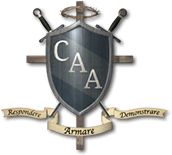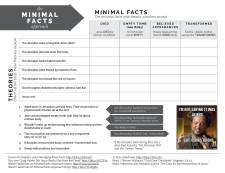Book Discussion of Christopher Norris’ “Epistemology: Key Concepts in Philosophy”
Chapter 2: Realism, Reference and Possible Worlds – Section II.
So, “the Kripkean treatment of issues in modal logic” is a main source for a revival of causal realism: “the claim that certain kinds of object necessarily and of their very nature possess certain properties, dispositions or causal powers”. Hilary Putnampushes even further toward causal realism with his “thought-experiments designed to drive home the realist point that meanings ‘just ain’t in the head‘. That is to say, what fixes the truth-conditions for our various statements concerning the physical world is not the range of descriptive criteria by which we pick out objects of this or that kind, but rather the existence of just such objects with just such uniquely identifying structures and properties.” So now we’re getting into internalism vs. externalism, with Putnam holding an externalist position. http://en.wikipedia.org/wiki/Internalism_and_Externalism
Norris goes into Putnam’s best-known thought-experiment (designed to show how “meanings just ain’t in the head”-in other words, the true properties of an object depend on that object’s existence, and are true independent of our sensing/describing them), called the Twin Earth thought experiment on Wikipedia: http://en.wikipedia.org/wiki/Twin_Earth_thought_experiment. Basically, an Earthian and Twin-Earthian end up accidentally naming two different objects “water” because they have the same descriptions (sense) of them-so the description does notnecessarily “refer” to the object H-2-O (as it can also ‘refer’ to XYZ). When Twin-Earthian says “Give me some water” you don’t automatically know what he is referring to (XYZ), even if he describes it to you. This experiment would work with any hetero/homonyms that share similar descriptions, but are not the same thing-though, I can’t think of any off the top of my head (that aren’t artificial, like Twin-Earthian water). Maybe I’ll come back and fool around with this and try to find a good example: http://www.fun-with-words.com/nym_homonyms.html Apparently Putnam restricted the thought-experiments to “natural kinds” (tigers, electrons), but Tyler Burge would think my hetero/homonym idea is cool, ’cause he extended it to other “artefacts or objects that don’t occur naturally but which, nonetheless, have their reference fixed through an inaugural act of naming and thereafter passed down through a communal ‘chain’ of transmission that ensures a sufficient degree of continuity despite any shifts in their range of descriptive criteria.” Here’s what I don’t get-if “descriptions” do not necessarily refer-why do names necessarily refer-since obviously the Earthian and Twin-Earthian incorrectly referred to the other’s wet stuff as water (the description was correct-the ‘name’ was not)? And where does “A rose by any other name would smell as sweet?” enter into this discussion? A name tells us nothing about the object, unless the description is part of the name (like the fruit we call “Orange”)-why is a name said to “refer” (is “refer” a synonym of “correspond”-as in the “correspond” of correspondence theory?-how can a “name” correspond to…correctly describe…reality?)(the “name” ‘meanie’ comes to mind)? Maybe names and descriptions are just two ways we smack a label on an object (maybe descriptions are just reeeeally long names, and names are just short-hand for descriptions?), and some descriptions/names “correspond” to the best of our knowledge-and some descriptions/names do not correspond (do not refer) (like the name/description of a unicorn)-even if they “have sense”. Maybe sometimes names survive paradigm-shifts, and maybe sometimes the shift is so huge that a new name is required to replace the old one, even though the new/old names both refer to the same object? But-that would mean the “referential chain of transmission” is still in tact-right? It seems that descriptions do refer, the same way names refer (when they refer)-it’s just harder to say “You know that thing we used to describe this way? Well, we’ve added this description to it,” -it’s easier to say, “Water has taken on a new description.” Both descriptions referred to the same object, but new descriptions give more of the picture-that is the way most scientific advancement works-the old theories are usually not totally wrong, just updated. Names are short-hand-descriptions are the real deal and tell us more about the object-but both names and descriptions are “place-holders” for the object being named/described. That’s my story and we’ll see if I stick to it throughout the book.
That talk of experts (Putnam’s “linguistic division of labor”) confused me and reminded me of John Stuart Mills letting the educated determine the higher pleasures. Right until proven wrong by experts? Kill all the experts and you’ll be right all the time. Seems like anti-realism to me. You’ve simply moved the mind-dependence out of your mind into someone else’s.
“Possible worlds” talk (modal logic) is rejected by Quine (physicalist) as ‘metaphysical indulgence’-whereas possible worlds are taken by David Lewis as being “as ‘real’ as our own but non-actual”. For more on that, wiki it. Goes back to Leibniz. Such a leap is not necessary, but apparently cannot be refuted. If there are truths we have yet to discover, they are not “possible” truths, they are actual truths-so I don’t think it is necessary to say all possibilities are “real” but non-actual. They don’t become actual just because we apprehend them-that would be anti-realism. Lewis’ position cannot be said to be realism, because all the possible worlds, even if they be counterfactual, share the same ontology, like Quine’s ontological relativity (consider simultaneously Thomas Kuhn’s related “world-web” from the last section). At any rate, Norris likes Lewis’ talk of certain transworld necessary mathematical truths, and the Kripke-Putnam modal realist distinction between transworld necessity (applying to math/logic) and a posteriori necessity (applying to our actual world)-answering Quine’s objection that ‘modal locutions run into trouble when it comes to distinguishing necessary from contingent truths’ (awkwardly depending on modal distinctions to enforce the point-suggesting modal logic is more basic than “first-order predicate calculus on which Quine supposedly builds his case”).
Every time I set out to do this I think “there’s no way” and before I know it, it’s done. I pray I finish this before I go back to work.









